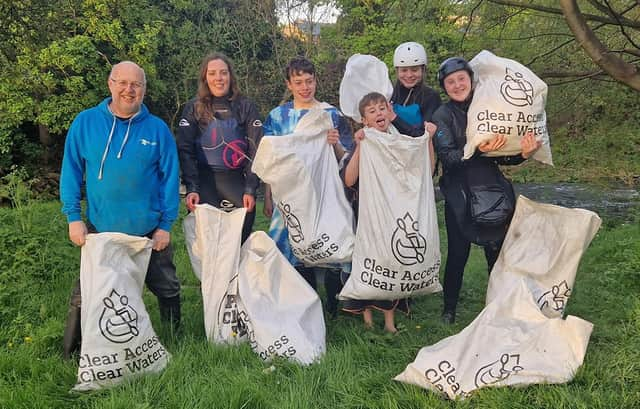Litter-busting paddlers join war on plastic


The members of Manvers Waterfront Boat Club toured Manvers Lake looking for litter and collected 15 bags’ worth of plastic water bottles, drinks cans and fast food packaging, along with some rather unusual items such as underwear and odd socks.
On top of this, a group from the Manvers Slalom Section removed a staggering 22 bags of rubbish from the River Don at Kilnhurst.
Advertisement
Hide AdAdvertisement
Hide AdIt was all part of British Canoeing’s Big Paddle Cleanup, a week of action to protect the places we love to paddle from plastic pollution.
In a variety of craft from open canoes to stand up paddleboards, the aim was to remove as much litter as they could, before it travelled through the lake and out onto the river.
Plastic which gets into the water does not biodegrade, instead it breaks down into smaller pieces which stay in the environment forever.
Fish and other creatures then mistake the plastic
particles for food, eat it, and it enters the food chain. Birds and other wildlife can also become entangled often leading to death.
Advertisement
Hide AdAdvertisement
Hide AdYvonne Merrills-White, paddlesport on-site co-ordinator at Manvers Waterfront Boat Club said: “We have a fantastic group of people at the club - from our local community and further afield, who
always go the extra mile.
“The efforts involved in hot temperatures was second to none.
“Manvers Lake means a lot to so many people and it’s great to see them benefitting from the facility and taking pride in it.”
Chantelle Grundy, access and environment officer at British Canoeing, said: “The scale of the Big Paddle Cleanup this year shows how much the paddling community care about our waters and what they’re prepared to do to protect them.
Advertisement
Hide AdAdvertisement
Hide Ad“Together, as a team, we will continue to protect our waterways to do what we love.”
British Canoeing launched its Access and Environment Charter, Clear Access, Clear Waters, in 2018, championing the case for fair shared sustainable access to healthy waters.